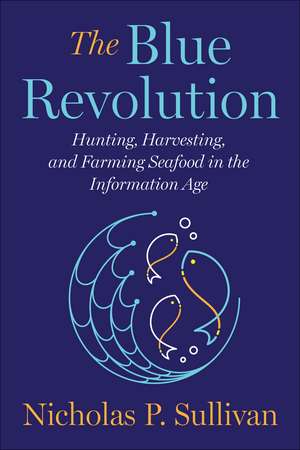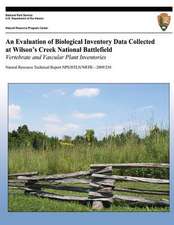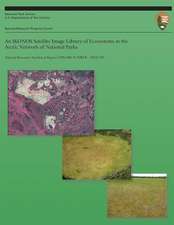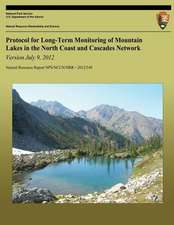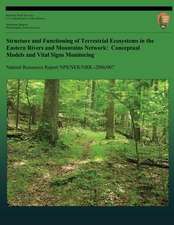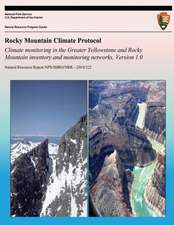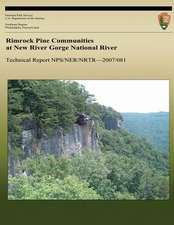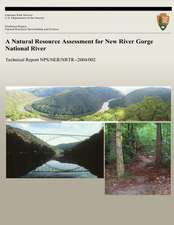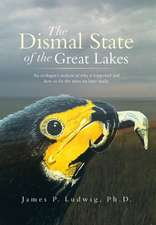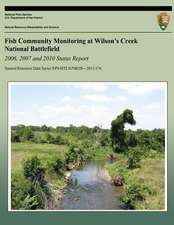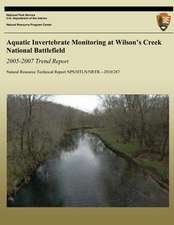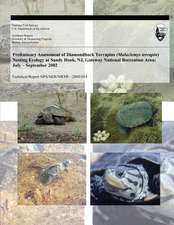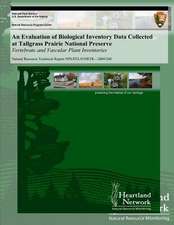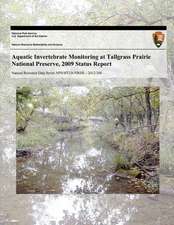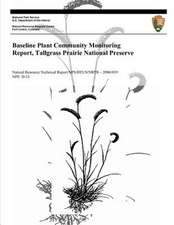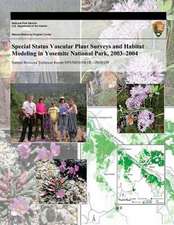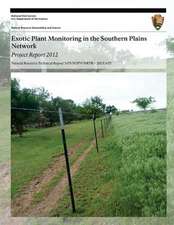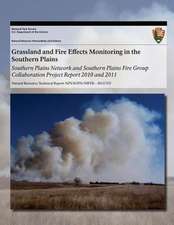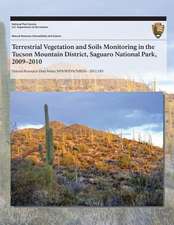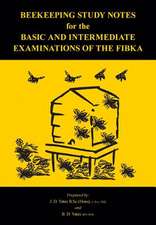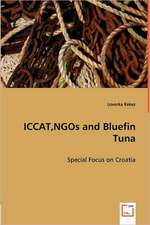The Blue Revolution: Hunting, Harvesting, and Farming Seafood in the Information Age
Autor Nicholas Sullivanen Limba Engleză Hardback – 18 apr 2022
Overfishing. For the world’s oceans, it’s long been a worrisome problem with few answers. Many of the global fish stocks are at a dangerous tipping point, some spiraling toward extinction. But as older fishing fleets retire and new technologies develop, a better, more sustainable way to farm this popular protein has emerged to profoundly shift the balance. The Blue Revolution tells the story of the recent transformation of commercial fishing: an encouraging change from maximizing volume through unrestrained wild hunting to maximizing value through controlled harvesting and farming. Entrepreneurs applying newer, smarter technologies are modernizing fisheries in unprecedented ways. In many parts of the world, the seafood on our plates is increasingly the product of smart decisions about ecosystems, waste, efficiency, transparency, and quality.
Nicholas P. Sullivan presents this new way of thinking about fish, food, and oceans by profiling the people and policies transforming an aging industry into one that is “post-industrial”—fueled by “sea-foodies” and locavores interested in sustainable, traceable, quality seafood. Catch quotas can work when local fishers feel they have a stake in the outcome; shellfish farming requires zero inputs and restores nearshore ecosystems; new markets are developing for kelp products, as well as unloved and “underutilized” fish species. Sullivan shows how the practices of thirty years ago that perpetuated an overfishing crisis are rapidly changing. In the book’s final chapters, Sullivan discusses the global challenges to preserving healthy oceans, including conservation mechanisms, the impact of climate change, and unregulated and criminal fishing in international waters.
In a fast-growing world where more people are eating more fish than ever before, The Blue Revolution brings encouraging news for conservationists and seafood lovers about the transformation of an industry historically averse to change, and it presents fresh inspiration for entrepreneurs and investors eager for new opportunities in a blue-green economy.
Nicholas P. Sullivan presents this new way of thinking about fish, food, and oceans by profiling the people and policies transforming an aging industry into one that is “post-industrial”—fueled by “sea-foodies” and locavores interested in sustainable, traceable, quality seafood. Catch quotas can work when local fishers feel they have a stake in the outcome; shellfish farming requires zero inputs and restores nearshore ecosystems; new markets are developing for kelp products, as well as unloved and “underutilized” fish species. Sullivan shows how the practices of thirty years ago that perpetuated an overfishing crisis are rapidly changing. In the book’s final chapters, Sullivan discusses the global challenges to preserving healthy oceans, including conservation mechanisms, the impact of climate change, and unregulated and criminal fishing in international waters.
In a fast-growing world where more people are eating more fish than ever before, The Blue Revolution brings encouraging news for conservationists and seafood lovers about the transformation of an industry historically averse to change, and it presents fresh inspiration for entrepreneurs and investors eager for new opportunities in a blue-green economy.
Preț: 181.20 lei
Nou
Puncte Express: 272
Preț estimativ în valută:
34.67€ • 37.08$ • 28.91£
34.67€ • 37.08$ • 28.91£
Carte disponibilă
Livrare economică 27 martie-10 aprilie
Livrare express 12-18 martie pentru 30.55 lei
Preluare comenzi: 021 569.72.76
Specificații
ISBN-13: 9781642832174
ISBN-10: 1642832170
Pagini: 272
Ilustrații: 14 illustrations, 1 au photo
Dimensiuni: 152 x 229 x 23 mm
Greutate: 0.5 kg
Editura: Island Press
Colecția Island Press
ISBN-10: 1642832170
Pagini: 272
Ilustrații: 14 illustrations, 1 au photo
Dimensiuni: 152 x 229 x 23 mm
Greutate: 0.5 kg
Editura: Island Press
Colecția Island Press
Notă biografică
Nicholas P. Sullivan is a writer and editor who examines the impact of business and technology on international development. He is also a Senior Research Fellow at the Maritime Studies Program and a Senior Fellow at the Council on Emerging Market Enterprises, both in The Fletcher School at Tufts University. Previously he has been codirector of The Fletcher School’s Leadership Program for Financial Inclusion, a consultant to central banks in developing countries, a visiting scholar at MIT’s Legatum Center for International Development, and editor-in-chief of Inc.com and of Home Office Computing. The Blue Revolution is his fourth book.
Cuprins
Preface
Part 1: Wild-Capture Fisheries
Chapter 1. Sacred Cod, Sustainable Scallops
Chapter 2. Changing Rules for a Changing Ecosystem
Chapter 3. As the Cowboys of the Sea Fade Away, a Postindustrial Fishery Emerges
Chapter 4. Eating with the Ecosystem
Chapter 5. The Silicon Valley of Cod (and Other Innovation Clusters)
Chapter 6. Run, Herring, Run: Restoring the Marine Food Web
Part 2: Farmed Finfish, Shellfish, and Sea Greens
Chapter 7. The Blue Revolution and Atlantic Salmon
Chapter 8. Fish for a Small Planet
Chapter 9. The Beauty of Filter-Feeding Bivalves
Chapter 10. Kelp—for Food, Fuel, Pharma
Chapter 11. The Holy Grail: Farming the Open Ocean
Part 3: Global Challenges: Criminals, Climate, Conservation
Chapter 12. Big Data versus Pirates on the High Seas
Chapter 13. Conservation and Climate, Adaptation and Resilience
Acknowledgments
Notes
About the Author
Index
Part 1: Wild-Capture Fisheries
Chapter 1. Sacred Cod, Sustainable Scallops
Chapter 2. Changing Rules for a Changing Ecosystem
Chapter 3. As the Cowboys of the Sea Fade Away, a Postindustrial Fishery Emerges
Chapter 4. Eating with the Ecosystem
Chapter 5. The Silicon Valley of Cod (and Other Innovation Clusters)
Chapter 6. Run, Herring, Run: Restoring the Marine Food Web
Part 2: Farmed Finfish, Shellfish, and Sea Greens
Chapter 7. The Blue Revolution and Atlantic Salmon
Chapter 8. Fish for a Small Planet
Chapter 9. The Beauty of Filter-Feeding Bivalves
Chapter 10. Kelp—for Food, Fuel, Pharma
Chapter 11. The Holy Grail: Farming the Open Ocean
Part 3: Global Challenges: Criminals, Climate, Conservation
Chapter 12. Big Data versus Pirates on the High Seas
Chapter 13. Conservation and Climate, Adaptation and Resilience
Acknowledgments
Notes
About the Author
Index
Recenzii
"Consumers who want to understand where their seafood comes from and how it is being sustained will appreciate Sullivan’s reporting."
"In The Blue Revolution, Nicolas Sullivan provides a different, more nuanced narrative of US fishing."
“The US has the fourth-longest ocean coastline worldwide but a history of failed fisheries management and sea farming and imports 85 percent of its seafood. This book, the product of five years of research, brings encouraging news without glossing over realities.”
“The Blue Revolution is a treatise on how synergisms among science, technology, markets, and regulations might mitigate overfishing and some impacts of climate change while providing seafood to the world. The book’s many case studies provide grounds for optimism.”
“Well-researched book…. well worth reading for anyone interested in where seafood comes from. They might be surprised by the background story of the fish on their plate.”
Descriere
For the world’s oceans, overfishing is a worrisome problem. Many global fish stocks are at a dangerous tipping point, some spiraling toward extinction. But there is a new way to think about fish, food, and oceans. The Blue Revolution tells the story of the recent transformation of commercial fishing, where entrepreneurs are applying newer, smarter technologies to modernize fisheries in unprecedented ways that relieve overstressed oceans.
Nicholas P. Sullivan presents this new way of thinking by profiling the people and policies transforming an aging industry into one fueled by “sea-foodies” and locavores interested in sustainable, traceable, quality seafood. The Blue Revolution brings encouraging news for conservationists and seafood lovers about the transformation of an industry historically averse to change, and it presents fresh inspiration for entrepreneurs and investors eager for new opportunities in a blue-green economy.
Nicholas P. Sullivan presents this new way of thinking by profiling the people and policies transforming an aging industry into one fueled by “sea-foodies” and locavores interested in sustainable, traceable, quality seafood. The Blue Revolution brings encouraging news for conservationists and seafood lovers about the transformation of an industry historically averse to change, and it presents fresh inspiration for entrepreneurs and investors eager for new opportunities in a blue-green economy.
